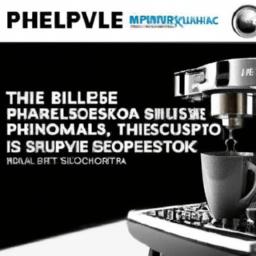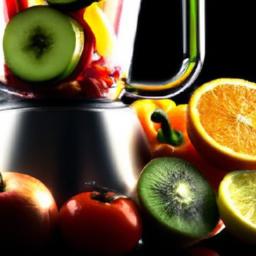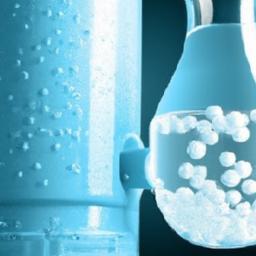Are you wondering if a slow juicer is the same as a cold press? You are not alone. Many people mix up these terms, but there are some key differences.
At How To Cook Gourmet, we believe understanding these differences can change how you enjoy juice. Both methods promise fresh, tasty juice without heating up your vitamins. But how do they actually work?
Today, we will break it down. We’ll compare what makes each juicer tick and help you decide which might fit your kitchen better. Ready to find out which juicer is king?
Slow Juicer and Cold Press Explained What Makes Them Similar and Different
Do you know what makes a slow juicer and a cold press juicer buddies yet rivals? Both squeeze juice at a snail’s pace, squeezing out maximum nutrients without heating things up. Because heat loves to kill vitamins, slow and cold pressing keep your juice healthy and tasty.
Here’s where they get tricky. A slow juicer crushes fruit and veggies using a slow-turn screw. It twists and grinds the produce to pry out juice. A cold press juicer, on the other hand, squeezes ingredients with great pressure, like a nutcracker, extracting juice without any grinding noise.
| Feature | Slow Juicer | Cold Press Juicer |
|---|---|---|
| Juicing Method | Crushing and grinding | Pressing and squeezing |
| Speed | Slow (40-80 RPM) | Very slow (10-50 RPM) |
| Noise Level | Low to moderate | Very quiet |
| Best For | Fruits, veggies, leafy greens | Leafy greens, wheatgrass, softer fruits |
Why does this matter? Well, the pressing technique often yields more juice and better nutrient preservation. But slow juicers are usually better for tougher ingredients. Choosing which is best depends on what you like to juice most. Ever thought about what you drink daily?
Both are slower than blender-style juicers. The trade-off? More juice, less foam, and fewer extra calories from heat damage. So, have you been rushing your juicing game without realizing the cost to freshness?
Juice Quality Showdown Which Gives You More Nutrients and Taste
When it comes to juice, does slower always mean better? Both slow juicers and cold press machines take their time, squeezing out every last drop. But how do they stack up when it comes to nutrients and taste?
Slow juicers work by crushing and pressing fruits and veggies, keeping temperature low to protect vitamins. Cold press juicers do the same, but they focus even more on applying gentle pressure.
| Feature | Slow Juicer | Cold Press Juicer |
|---|---|---|
| Vitamin Retention | Good | Excellent |
| Juice Yield | High | Higher |
| Taste | Fresh and Sweet | Extra Smooth |
| Oxidation Rate | Low | Lowest |
Think of nutrients as delicate guests. The slower you treat them, the longer they stay happy. Cold press juicers tend to be even gentler, preserving more antioxidants and enzymes.
Taste can fool you, though. Would you rather have bold, fresh flavors or a silky smooth sip? Cold press juices usually win the smoothness contest, but slow juicers can pack a punch with sweetness.
So, do we want more nutrients or a flavor that bursts in our mouths? Maybe both, in which case cold press might just win this friendly face-off. What’s your pick for the perfect juice moment?
Speed Versus Patience How Long Will You Wait for Your Juice Fix
We’re all about getting that juice, but patience is a real factor here. Do you want your juice fast, or are you okay waiting a bit longer for something smoother?
Speed juicers work like a whirlwind. They crank out juice quickly but can heat it up slightly. That heat can change the flavor and might lose some nutrients. Cold press juicers, on the other hand, take their sweet time. They crush and press the fruits and veggies slowly, keeping the juice fresh and tasty.
| Juicer Type | Time to Juice | Flavor Quality | Nutrition Loss |
|---|---|---|---|
| Speed Juicer | Under 1 minute | Good but slightly warm | Moderate |
| Cold Press Juicer | 3-5 minutes | Excellent and cool | Minimal |
Which one fits your lifestyle? If you’re rushing to work, speed juicers might be your buddy. But if you have a moment to spare, cold press juices can be a treat. Remember, great things come to those who wait, even when it comes to juice.
Here’s a quick rundown to think about:
- Speed juicer: fast and furious, but with a possible cost to taste and nutrients
- Cold press juicer: slow and steady wins the flavor race
Does speed beat quality for you, or do you savor every drop? Weighing this choice lets us enjoy juice our way.
Clean Up Time Which Juicer Won’t Drive You Crazy After Use
Cleaning up after juicing can make or break your love for that appliance. Nobody wants to spend more time scrubbing than sipping on fresh juice. Which type of juicer saves us from the mess monsters?
Cold press juicers, also called slow juicers, tend to take a bit longer to clean because they have more parts. But here is the catch: their pieces are bigger and easier to rinse or pop in the dishwasher. Sounds like a fair trade, right?
| Juicer Type | Parts to Clean | Cleaning Time | Best For |
|---|---|---|---|
| Slow Juicer | Multiple, larger parts | Moderate (5-10 mins) | Juice lovers with patience |
| Cold Press Juicer | More parts, easy to clean | Moderate (5-12 mins) | Those who avoid scrubbing scrapes |
| Other Juicers | Few parts | Quick (2-5 mins) | Speed fans |
Pro tip: If you rinse your juicer parts right after use, they’re less likely to become a sticky nightmare. Who wants to play “catch the pulp” anyway?
We suggest checking if the juicer parts are dishwasher-safe before you buy. The easier it fits in your routine, the more you’ll want to use it. What’s your biggest cleaning deal breaker?
Noise Level Battle Will Your Juicer Wake the Whole Neighborhood
How loud is your juicer? You might think all juicers sound like a gentle hum, but some will have your neighbors wondering if a construction crew moved in next door.
Both slow juicers and cold press machines work at a turtle’s pace compared to traditional juicers. That means less noise. But how much less? We find it helpful to compare them side by side.
| Juicer Type | Noise Level | What to Expect |
|---|---|---|
| Slow Juicer | 45-60 dB | Whisper quiet to a quiet conversation |
| Cold Press Juicer | 50-65 dB | Soft hum, noticeable but not annoying |
Does that mean you could drink your smoothie without your dog filing a noise complaint? Usually, yes. Slow juicers tend to be gentler on ears. Cold press machines might be slightly louder but still polite compared to blenders or citrus juicers.
- Tip: Early riser? Choose a juicer on the quieter end of the scale.
- Pro Tip: Juice in another room if your neighbors have thin walls.
Wondering if the noise is worth the juice quality? Sometimes a little buzz means better taste and nutrition.
Versatility Check What Fruits and Veggies Can Each Handle
Wondering which juicer flexes more with fruits and veggies? Both slow juicers and cold press models handle many types of produce well, but there are some quirks.
Slow juicers are like your reliable friend who can tackle almost anything. They excel with leafy greens, soft fruits, and even fibrous veggies. Cold press juicers, on the other hand, are masters at extracting juice from tough greens and hard roots without breaking a sweat.
| Produce Type | Slow Juicer | Cold Press Juicer |
|---|---|---|
| Leafy Greens (kale, spinach) | Good – handles well with high yield | Great – often better at squeezing dry leaves |
| Soft Fruits (berries, grapes) | Great – gentle, preserves flavors | Good – might need extra cleanup |
| Hard Veggies (carrots, beets) | Good – powerful motor, can be slow | Great – efficient and smooth |
| Citrus (oranges, lemons) | Fair – not ideal without attachments | Okay – some models manage better |
| Fibrous Veggies (celery, ginger) | Good – can handle with effort | Great – excels at breaking down fibers |
Are we ready to challenge these juicers with something tricky? Fruits like pineapple or veggies like ginger can test their strength. Cold press juicers tend to break down fibers better, making juice smoother. Slow juicers might take a bit longer, but they get the job done.
What about citrus? Both types are not the best for juicy oranges unless you have the right attachments. It’s a specialty task that neither loves on its own.
Choosing between these machines depends on your favorite fruits and veggies. Do you enjoy leafy green smoothies or carrot-beet combos? The right juicer will be your kitchen MVP, handling your produce like a pro every time.
Price Tag Face-Off Where Should You Spend Your Juice Budget
When it comes to spending your juice budget, you have some choices to make. Slow juicers and cold press juicers both promise fresh, tasty juice, but their price tags tell different stories. Are you ready to see where your money will go?
| Juicer Type | Average Price | What You Get | Best For |
|---|---|---|---|
| Slow Juicer | $100 – $300 | Decent quality juice, easy to clean, quiet | Beginners, budget-conscious juicers |
| Cold Press Juicer | $300 – $800 | Top-notch juice quality, preserves nutrients | Juice enthusiasts, health nuts |
What are you after? A juicer that fits your wallet or one that makes the fanciest juice in town? The price gap can feel like a jump over a juice river.
- Slow juicers often keep things simple and solid. They won’t break the bank and will still give you good juice.
- Cold press models come at a cost but shine in quality and nutrients, perfect for those who want the best glass of green magic.
How often do you think you’ll juice? If it’s a daily ritual, investing more upfront could save you disappointment in the long run. If juicing is a once-in-awhile hobby, a slower, cheaper model might suit you just fine.
Our Final Take Which Juicer Works Best for Different Juice Lovers
Ever wondered which juicer suits your lifestyle best? It’s a bit like choosing your favorite superhero-each has its own strengths. Slow juicers are excellent if you love thick, nutrient-packed juice that feels like a treat. They take their time, but boy, do they deliver.
Cold press juicers, on the other hand, are all about keeping things fresh and speedy. If you want your juice fast without losing too many vitamins, these are your sidekick. They are great for busy mornings and quick boosts.
| Juicer Type | Best For | Benefit |
|---|---|---|
| Slow Juicer | Juice lovers who enjoy rich flavor and thick texture | Maximum nutrient preservation |
| Cold Press Juicer | People who want quick juice with good nutrition | Fast extraction and less foam |
Are you all about those sweet greens or nuts in your juice? Slow juicers handle leafy veggies and nuts better. But if speed is king and you’re squeezing simple fruits, cold press might be the tool for you.
- Want long-lasting juice? Pick slow juicers.
- In a hurry and need easy cleanup? Cold press wins.
- Love experimenting with ingredients? Slow juicers offer more versatility.
At How To Cook Gourmet, we realize it’s not just about juice. It’s about how it fits with your daily hustle. So, figure out what matters more to you-patience or speed-and your perfect juicer will reveal itself.
Juice Extractor vs Juicer: Which Appliance Deserves Your Kitchen Counter?
Standing in your kitchen, debating whether to invest in a juice extractor or a juicer can be puzzling. Both devices promise fresh, vibrant juice, but they operate quite differently-and choosing the one best suited to your lifestyle can elevate your juicing experience.
Understanding the Fundamental Differences Between Juice Extractors and Juicers
While “juice extractor” and “juicer” are often used interchangeably, they are distinct in their mechanics and results. Juice extractors typically work by slowly crushing and pressing produce to gently extract juice, maximizing yield especially from leafy greens and softer fruits. This slow process preserves more nutrients and minimizes foam.
Conversely, centrifugal juicers employ rapidly spinning blades to shred fruits and vegetables, spinning out juice with centrifugal force. This method produces juice quickly but may introduce more heat and oxidation, potentially degrading some nutrient quality and increasing froth.
| Aspect | Juice Extractor | Centrifugal Juicer |
|---|---|---|
| Juice Quality | Thicker, less foam, nutrient-rich | Lighter, often frothy, quicker |
| Processing Speed | Slower (40-80 RPM) | Faster (up to 15,000 RPM) |
| Optimal Produce | Leafy greens, soft fruits | Hard fruits and vegetables |
| Noise Level | Quiet to moderate | Loud and fast |
Which Fruits and Vegetables Play Well with Each Machine?
Different juicers handle various produce uniquely. For example, apples and carrots fall into the strong suit of centrifugal juicers, which can quickly shred and extract juice. However, leafy greens like spinach or kale pose a challenge for these fast-spinning machines, often resulting in inefficient extraction and clogged parts.
On the flip side, juice extractors shine with delicate, leafy vegetables and soft fruits. Their slow pressing technique ensures a high juice yield with less waste, perfect for tomatoes, wheatgrass, or spinach. Nonetheless, they sometimes require more patience when handling hard vegetables.
| Produce | Juice Extractor | Centrifugal Juicer |
|---|---|---|
| Apple | Highly efficient with dry pulp | Good, but slightly lower yield |
| Carrot | Strong capability for tough veggies | Effective, but less juice extracted |
| Kale | May clog; less efficient | Extracts well with gentle pressing |
| Tomato | Some juice lost with pulp | Great for soft produce; high yield |
| Celery | Good output with frequent cleaning | Smoother juice, less pulp |
Nutrition Face-Off: Which Retains More Vital Nutrients?
Nutrition-conscious juicers favor slow-pressing juice extractors that reduce heat and oxygen exposure. This gentle masticating action protects valuable enzymes, vitamins, and antioxidants, yielding richer and thicker juice. Scientific studies show masticating juicers can preserve up to 30% more nutrients compared to centrifugal models.
Centrifugal juicers deliver speed at the expense of some nutrient loss due to heat and oxidation generated by high-speed blades. However, they are invaluable for quick juice production when time is limited.
| Feature | Juice Extractor (Slow Juicer) | Centrifugal Juicer |
|---|---|---|
| Speed | Slow | Fast |
| Heat & Oxygen Exposure | Minimal | Higher |
| Vitamin Retention | Superior | Moderate |
| Juice Yield | Higher | Moderate |
Decibels & Duration: How Speed and Noise Impact Your Daily Routine
If your morning routine requires peace, the slow, quiet hum of juice extractors is a boon. Operating at low speeds, these machines minimize noise, ideal for households valuing calm starts. Alternatively, centrifugal juicers act like sprinters-swift but loud-potentially disturbing light sleepers or quiet neighbors.
| Machine Type | Average Speed (RPM) | Noise Level |
|---|---|---|
| Juice Extractor | 40-80 (slow) | Low to moderate |
| Centrifugal Juicer | 3,000-15,000 (fast) | High |
Consider your morning environment: tranquil or bustling? Small kitchens may amplify noise levels; factor this in. Patience for slow juicing rewards serenity and nutrients.
Cleaning Considerations: What’s Worth Your Time?
Juicing doesn’t just end with the last drop; cleaning routines vary widely. Juice extractors typically have more components requiring thorough cleaning, including augers, strainers, and pulp containers. They may involve tools like small brushes to clear stuck pulp.
Centrifugal juicers, with fewer parts, usually offer quicker disassembly. Yet, their fine mesh filters can clog stubbornly with pulp, demanding delicate handling to avoid damage.
| Cleaning Factor | Juice Extractor | Centrifugal Juicer |
|---|---|---|
| Number of Parts | More, intricate | Fewer, simpler |
| Pulp Residue | Sticky, hidden in crevices | Less sticky, but filters clog easily |
| Cleaning Time | Longer; requires patience | Shorter but careful |
Matching Juicing Styles: Selecting the Ideal Machine for Your Preferences
Are you nostalgic for juicy green blends or quick citrus fixes? Juice extractors cater to those valuing nutrient density and versatility, handling tough root vegetables and greens gracefully. Juicers (centrifugal), meanwhile, are favored for fast juicing of firmer fruits such as apples, pears, and carrots.
| Juice Extractor | Centrifugal Juicer | Best Suited For |
|---|---|---|
| High torque slow motor | High-speed blades | Hard veggies, dense fruits |
| Produces thicker juice with more fiber | Clearer, lighter juice | Leafy greens, quick juice lovers |
| Requires longer cleaning | Faster cleanup with fewer parts | Busy mornings, convenience seekers |
For speedy mornings: centrifugal juicer prevails. For nutrient-heavy, fuller-bodied juices: extractors excel. For fun kid-friendly juice textures, slow juicers often produce better variety.
Investment Insights: Evaluating Cost Against Performance
Juicing appliances range widely in price, with juice extractors generally carrying a heftier price tag due to their complex mechanisms and superior nutrient retention. Entry-level centrifugal juicers provide a budget-friendly option without sacrificing basic performance.
| Machine Type | Typical Price Range | Ideal For |
|---|---|---|
| Juice Extractor | $150 – $600+ | Frequent juicers, nutrient focus |
| Centrifugal Juicer | $50 – $250 | Casual users, soft fruit lovers |
Consider how often you’ll juice and what produce you prefer. Higher upfront cost may save time and improve health benefits long term. Budget constraints might guide you towards centrifugal options.
Top Recommendations: Our Favorite Juicers and Extractors of 2024
Here are well-regarded models reflecting different juicing approaches for various needs:
| Model | Type | Speed | Suited For | Highlight |
|---|---|---|---|---|
| Omega J8006 | Masticating | Slow | Greens and soft produce | Super quiet operation |
| Breville Juice Fountain Plus | Centrifugal | Fast | Hard fruits, quick juice | Simple to use |
| Hurom H101 | Juice Extractor | Medium | All-round juice making | Elegant design |
Common Queries Answered: Juice Extractor vs Juicer
- Are juice extractors and juicers the same? All juice extractors fall under the umbrella of juicers, but not all juicers use extraction methods. Juicers can also refer to simpler devices like manual squeezers.
- What distinguishes a juice extractor from a centrifugal juicer? Extractors employ slow, crushing motions to gently press juice, preserving nutrition, while centrifugal juicers rely on high-speed spinning to separate juice rapidly.
- Which device generates higher juice yield? Juice extractors typically extract more juice, maximizing output by pressing pulp thoroughly.
- Is juice taste noticeably different between the two? Yes. Extractors generally produce a fuller-bodied, less foamy juice; centrifugal juicers yield lighter, frothier juices.
- Which machine cleans up easier? Centrifugal juicers often have fewer parts and clean faster, while extractors require more meticulous cleaning.
- What’s better for daily juicing? It depends on priorities: speed and convenience favor centrifugal, nutrition and quality favor extractors.
- Can both handle all fruit and vegetable types? Extractors excel with leafy greens and soft produce; centrifugal models process hard fruits and veggies more swiftly.
- Do price points vary significantly? Yes, extractors usually cost more due to advanced technology and quality outcomes; centrifugal juicers tend to be budget-friendly.
Looking Ahead: What’s Your Juicing Future?
The ultimate choice between a juice extractor and a juicer hinges on your juicing style. Whether you prefer the rich, textured juice from a slow extractor or the quick, clear juice from a fast centrifugal model, both bring unique advantages to your kitchen.
As juicing trends evolve, new innovations are enhancing nutrition retention and user convenience. Stay tuned for models that combine the best of both worlds. Meanwhile, reflect on what your ideal glass of juice looks and tastes like-clarity and speed, or depth and density? Your new kitchen companion awaits.




